This article was originally published in March 2023.
On a global level, we can speak of a crisis of democracy, even though the discussions around the Finnish elections give little indication of this. International democracy indicators are consistently pointing to an ebbing tide of democracy as authoritarian systems seek to restrict the space for democracy. Russia’s intense war of aggression against Ukraine is the most concrete example of this. And this is why even closer co-operation between democratic states is vital in the struggle between social systems.
It is against this backdrop that the United States will, on the initiative of President Joe Biden, host the second Summit for Democracy on 29 and 30 March. The summit will be organised in close co-operation with Costa Rica, the Netherlands, South Korea and Zambia. In addition to heads of state, the summit will be attended by government leaders, non-governmental organisations, think tanks and researchers.
In Finland, the summit has thus far received very little public attention. This is likely to be a result of the parliamentary elections taking up the news agenda, and also partly down to the relatively weak tradition of debate on democracy in Finland. International conferences on the climate crisis have become familiar to everyone over the past couple of decades, but efforts to build international co-operation around the crisis of democracy have been less frequent.
At the first Summit for Democracy convened by President Biden in 2021, some 100 countries pledged to strengthen democracy, fight corruption and authoritarianism and promote equality and the rule of law. The year 2022 was declared “a year of action” for finding tangible solutions that could be easily disseminated between countries to promote the achievement of the pledges made.
There was heated debate ahead of the first Summit for Democracy about which countries were deemed to be sufficiently democratic to participate in the event. This year’s summit will be attended by 120 countries, not all of which are fully democratic. Many of the participating countries can be characterised as hybrid democracies: they hold elections and have decisions made by a parliament (often with the dominant political party having an overwhelming majority). Nevertheless, they may have restrictions on basic rights, such as the freedom of expression.
Global collaboration is about finding the lowest common denominator
Although democracy as a societal system is facing an acute crisis in the face of the strong challenge posed by authoritarian states, President Biden’s Summit for Democracy has not set its sights on particularly forceful measures or final resolutions. Unlike summits under the EU and UN systems, the Summit for Democracy is an informal process. It aims to encourage different types of democracies to defend themselves against the authoritarian bloc led by China and Russia and, at the same time, to reform their respective democracies and related practices.
Some 70 per cent of the world’s population live under authoritarian regimes, and authoritarian states account for as much as 46 per cent of international trade. In light of these figures, the capacity of democracies to defend human rights and a free society may appear weak – especially if democracy in the United States is undermined.
Nevertheless, President Biden’s process underscores the superiority of democracies compared to authoritarian regimes. The democratic system provides space for ideas, innovation and co-operation, among other things. This is precisely the main contribution of the Summit for Democracy: it brings together states, non-governmental organisations, researchers and young people to share their visions of what the future of democracy could look like. Ideally, this facilitates the dissemination and scaling up of good ideas and practices.
One such example is the Global Democracy Coalition, a multi-stakeholder alliance of some 200 democracy organisations that was established to coincide with the first Summit for Democracy. Its purpose is to diversify and broaden the discussions initiated at the summit.
This leaves heads of state with a more limited role, but that is exactly how it should be in a democracy. Still, having government leaders and heads of state participate in the development of democracy enables the shared efforts to have a stronger impact. The comprehensive reform of democracy requires the support and willingness of government leaders to implement reforms in collaboration with various stakeholders. The commitment of states and the reform of democracy can be monitored through a website maintained by the International IDEA institute.
Sitra and the Technology and Democracy Cohort
Finland will be represented at the Summit for Democracy by President Sauli Niinistö. Under the leadership of the Ministry for Foreign Affairs, Sitra is part of the Technology and Democracy Cohort, which is co-ordinated by the United Kingdom, Estonia and the non-governmental organisation Access Now. Since autumn 2022, the cohort has promoted the strengthening of democracy by focusing on responsibility, freedom and security. A total of 17 cohorts are developing solutions to support the objectives of the “year of action”.

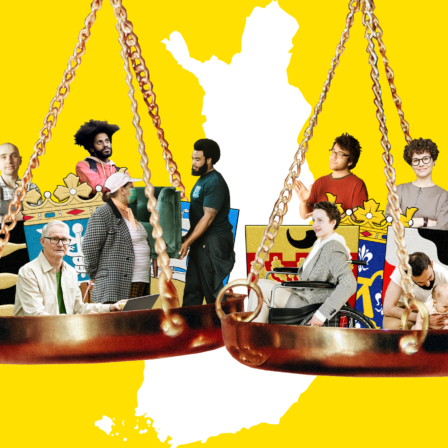



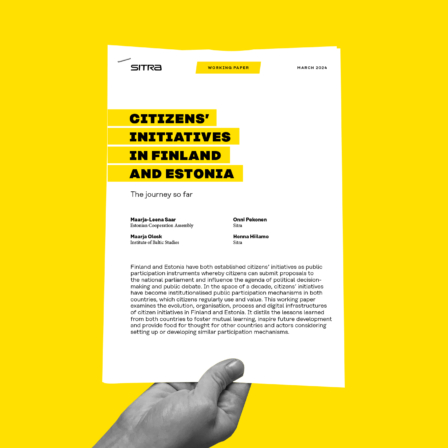
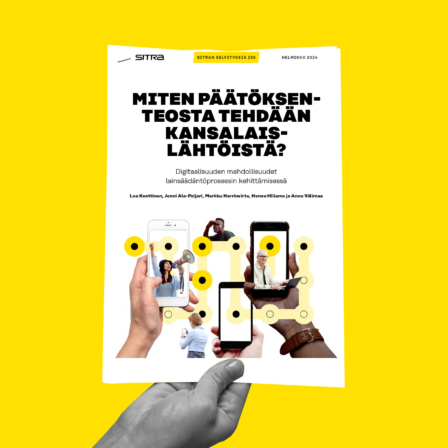


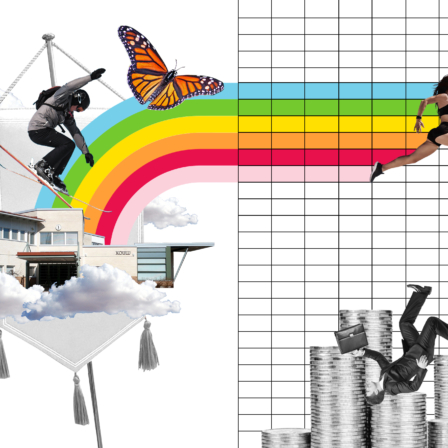



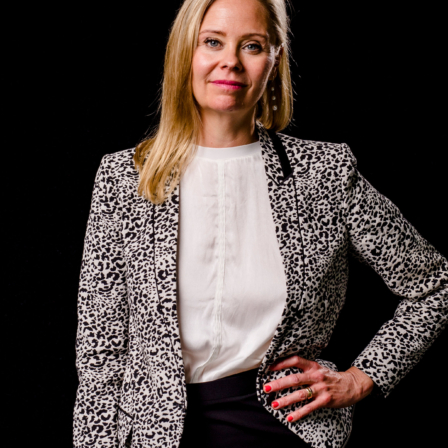



Recommended
Have some more.